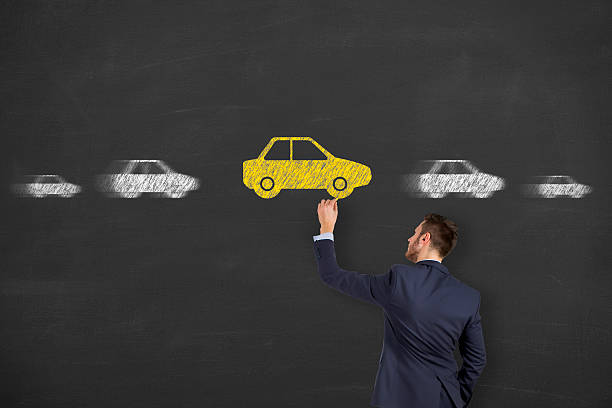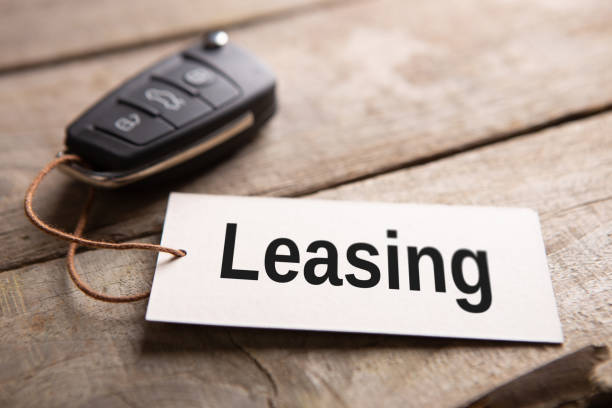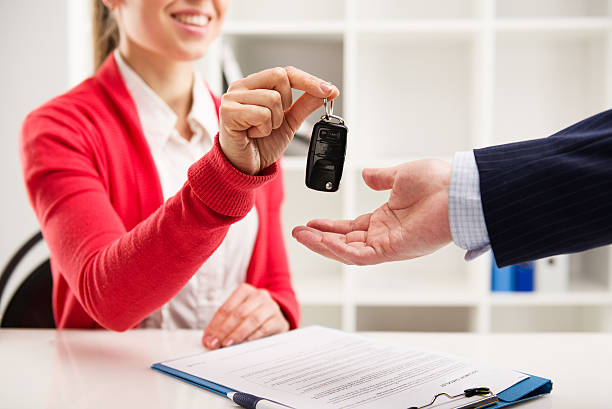Pros and Cons of Buying vs Leasing a Car
One of the most frequent issues of making a choice of a vehicle is the issue of whether to buy or lease. Each of the options should offer you a package of its perks and setbacks, but at the endpoint, your personal budget, your consumption patterns, and your personal taste factor come into play, deciding which option best suits you. Before making any decision, it is necessary to think about both purchasing and leasing. Through thorough analysis of both buying and leasing options, you can increase your financial capacity, add more flexibility, and make sure that your vehicle is in line with your long-term desires.

Understanding Car Buying
If you purchase a vehicle, you can make a full payment for the vehicle immediately, or you can finance the cost of the vehicle by securing a loan that you should pay monthly until you pay the car in full. When the loan is paid off, you acquire the ownership of the vehicle and can use it flexibly, as only maintenance, insurance, and, once in a while, repair charges will be incurred. Having a car gives you freedom but also means you have to handle some responsibilities.
Advantages of Buying a Car
One of the key benefits is to make significant long-term savings. The starting expense of buying the car or repaying the loan could appear very high, but as soon as the loan expires, you no longer have to pay anymore for the car. This setup can become quite financially liberating in the long run. Moreover, car buyers are able to customize their vehicles and add on items such as improved sound systems or distinct aftermarket add-ons. The flexibility to drive as much as it’s necessary without limitations stops excess charges that can be experienced with mileage limits in leasing.
Disadvantages of Buying a Car
However, there are also several car purchasing disadvantages. One of these big drawbacks regards the fact that cars depreciate a lot really quickly—the first year of car ownership can see depreciation of 20-30% of the original purchase price. If you opt to trade your car in the future, the rapid rate of depreciation can wreck its value. Upkeep costs on the car can skyrocket after the expiration of the warranty. Even if you go about getting a new car every few years, you may need to think twice as to whether buying would work for your budget.
Understanding Car Leasing
Car leasing is like borrowing a car following a lease plan. You pay a monthly fee to drive a new car for a given number of years, usually two to four, after which you will return the car to the manufacturer at the end of the lease. You may have the option to buy the car at the end of your lease, but most lessees choose a new lease plan.
Advantages of Leasing a Car
Leasing enables us to enjoy a new car every couple of years, which is another advantage. By leasing, drivers can gain access to modern tech, superior fuel economy, and cutting-edge safety innovations without being obliged to own a car for extended periods. Lease payments are much cheaper than loan financing, and having the car under the cover of the manufacturer’s warranty the whole way throughout the lease agreement means repair costs are kept to a minimum. Leasing emerges as a desirable alternative for those interested in convenience, style, and guarantee.
Disadvantages of Leasing a Car
Nonetheless, leasing puts a brake on your mobility, as the majority of lease agreements come with mileage caps, which are usually somewhere between 10,000 and 15,000 miles per year, and if you exceed them, you might be in for a stiff fine. You need to keep the car in very good condition during the only period of the lease. If the vehicle comes to lease-end in a beat-up condition, extra fees may be charged. In addition, through leasing, you will never end up with equity in the car. For all intents and purposes, you get the usage of the car up to a defined period, but you will not get the ownership.
Financial Considerations: Monthly Payments and Down Payments
In most instances, financial considerations are what dominate when one has to choose between leasing and buying. What is normally the case is that if someone is going to buy a car, he/she has a tendency to pay a large down payment and large monthly installments in case the loan is small. However, when you clear the loan, the car will be completely yours. On the other hand, there is the case of leasing that only requires a modest down payment and low regular payments and works for people who want another way to handle their money.
Long-Term vs. Short-Term Perspective
If you want to have a car in the long term, then buying is usually a better deal. After making payments, the car belongs to you, and you can continue to use it as long as they provide regular maintenance. However, there are exceptions to this, but in most cases, the ownership of a car for a decade (10 years) would have cost you less than leasing new cars for the same period. Leasing attracts those who want to have access to the latest technology and do not want to get rid of old vehicles. Although this benefit sounds attractive, it leads to continuous financial obligations.
Depreciation and Value Retention
The fact is that car depreciation affects buyers more than it does when it comes to lessees. Reliable vehicles are likely to undergo drastic depreciation within a few years. Yet, on leasing, you can return the vehicle before significant depreciation reduces its value, hence minimizing losses. However, this stance implies that lessees cannot retain any value from the vehicle upon the lease period. Being informed on how vehicle depreciation works can help you to determine which leasing or ownership option is the most suitable for you.
Flexibility and Lifestyle Considerations
In the lifestyle you lead, you determine if you will own or rent a vehicle. If your lifestyle entails a lot of traveling, either on the job or for leisure, renting via a lease agreement may carry its limitations due to mileage restrictions. On the other hand, if you are an urbanite who doesn’t make long trips off so often, leasing would actually be useful since it requires low cleaning. Children’s families tend to find it attractive to own a car if they require reliable transportation over a long period. Younger professionals can afford to lease so as to test out the latest driving features and amenities.
Customization and Personalization
Car ownership offers the freedom to modify one’s car in any manner one likes. With ownership, buyers get to fit their cars according to the performance upgrades of their choice and repaint them to their preferred color. Often with leases, there are restrictions that preserve the original condition of the vehicle and restrict the capacity to personalize it. This consideration may be an important factor in how car enthusiasts choose to move forward.
Insurance and Maintenance
Insurance implication is a factor that most individuals tend to ignore when they are in need of choosing between leasing and buying. Leasing may send you to buy higher coverage insurance, which may increase your lease bill. Lessees tend to reduce the cost implication of sudden repair expenses by incorporating maintenance packages into the lease agreement. Since warranties come to an end, all maintenance and repair charges are passed to the owner, but this enables them to avail of service providers without dealership price hikes.
Tax Implications and Business Use
Leasing vehicles can be a tax benefit to owners or entrepreneurs in business. Business owners are able to separately deduct the lease costs from personal income tax and hence reduce their total tax liability. By comparison, buying a car may also provide another benefit in the form of depreciation tax. Ask for advice from a financial advisor prior to beginning a business vehicle lease.

Environmental Considerations
Customers who are environmentally conscious often decide to lease electric or hybrid vehicles because it provides them with the current technology at intervals on a regular basis. Leasing enables you to replace your older cars with environmentally friendly ones at minimal initial costs. Then, keeping a fuel-efficient car for the long term usually will have a smaller environmental cost compared to leasing several cars.
End-of-Term Options
When the lease ends, you return the car, and you are either able to initiate a new lease or surrender the current car to the leasing company. You do not have to worry about the value of the car on resale or when trading in. But if you emotionally connect with the car, it might cost a lot of money for you to buy out the lease rather than beginning with a full initial payment. If you decide to buy a car, you have the flexibility to hold on to it as long as you want it, or if you need a trade, you can trade it in for another or upgrade to another model whenever you want.
The right choice has an individual orientation.
There is no one-size-fits-all answer. You ought to decide between buying and leasing depending on your finances, future goals, transport needs, and individual character. For some, car ownership is seen as a way of obtaining solid financial savings and long-term stability. For the others, leasing provides additional flexibility, enables them to have newer cars, and guarantees a constant amount in payments each month.
Final Thoughts: Pros and Cons of Buying vs Leasing a Car
The main decision in favor of buying or renting a car does not depend on the numerical value of the monthly payment alone. Your expectations as to mode of use of vehicles, ownership length periods, and your personal preferences of driving influence the best choice. Proper consideration of the pros and cons of buying vs Leasing a Car will help you to choose a solution that fits your budget and your goals.
The wise decision is to choose the option that suits your actual needs, deciding which one is preferable for you, whether you prefer the longstanding ownership and money savings or short flexibility and up-to-date technologies. While you’re thinking about purchasing or renting, take time to formulate your goals and figure out which is the better one according to your aspirations.
FAQs: Pros and Cons of Buying vs Leasing a Car
The monthly payment figures are usually lower when you lease, but in the end it may not be more sensible for your finances if you purchase the car because you end up owning is it?
Not necessarily. Month-by-month leasing can appear more affordable, but the ownership of a car in the long run will actually prove to be more advantageous since you do retain ownership and do not have to continue paying by the month.
Is it possible to buy the car after my lease expires?
In most lease agreements, there is the opportunity to outright buy the car at the end of your lease. To do this first, comparison with the car’s prevailing market value ought to be a prior step when weighing the buyout price in making a decision.


